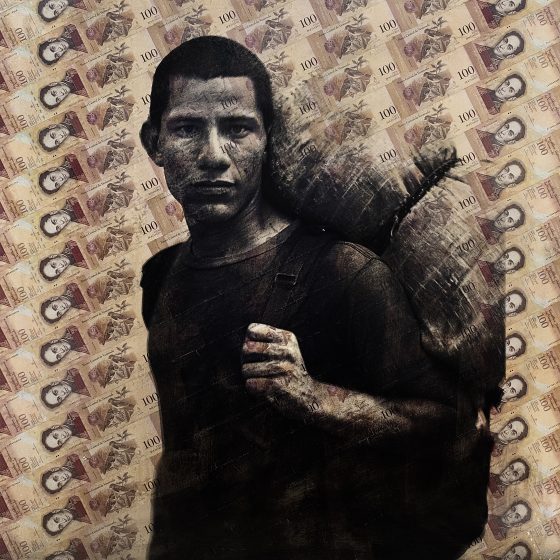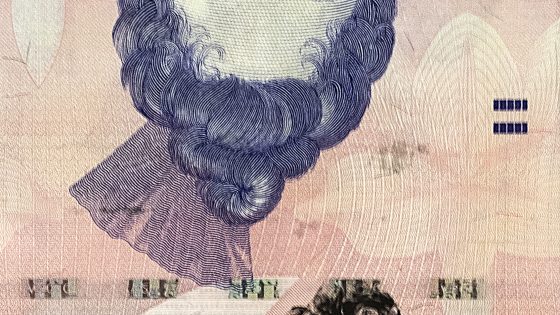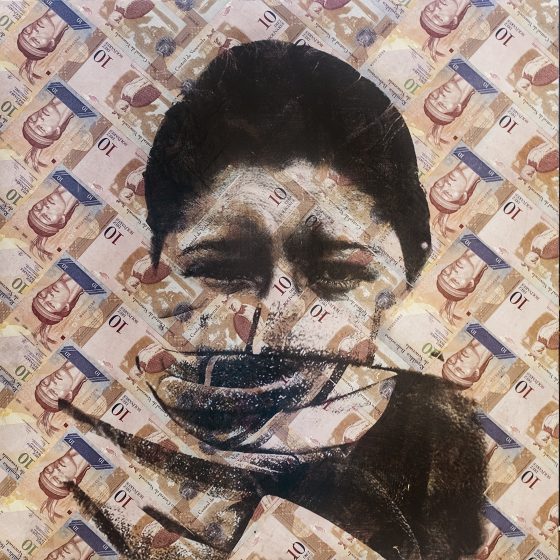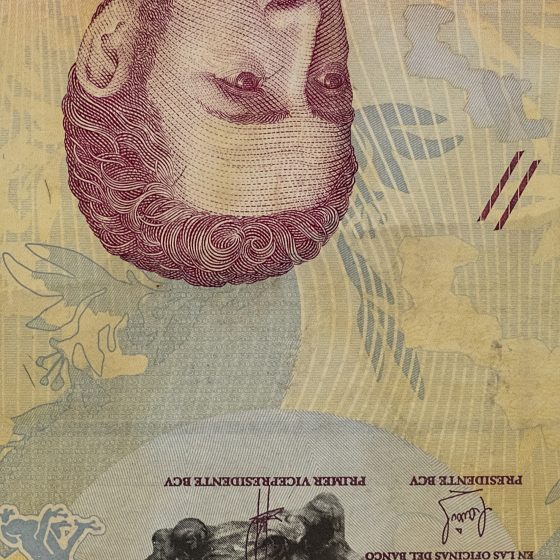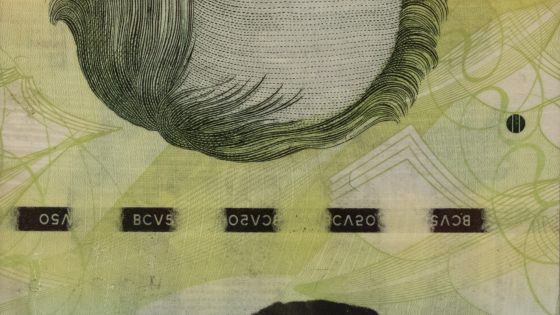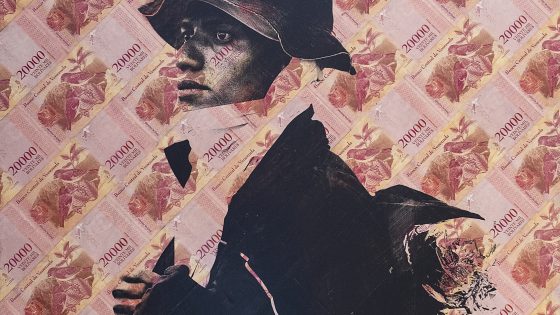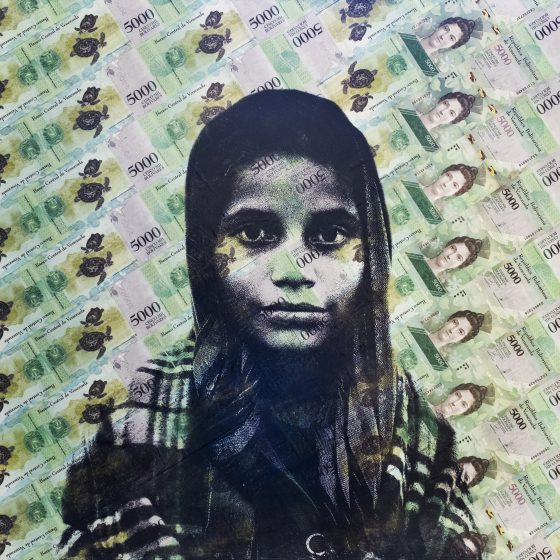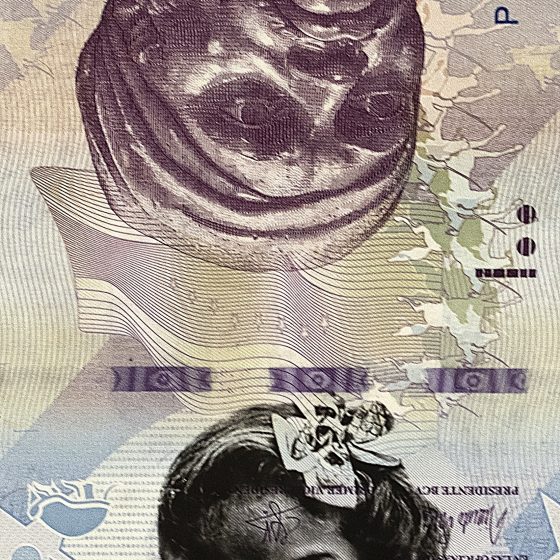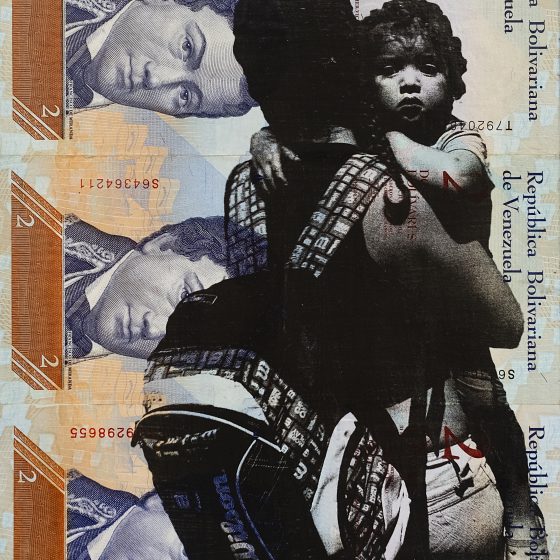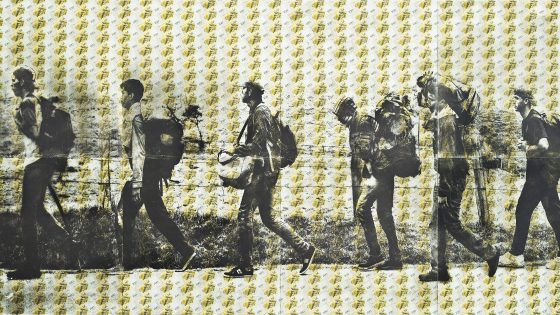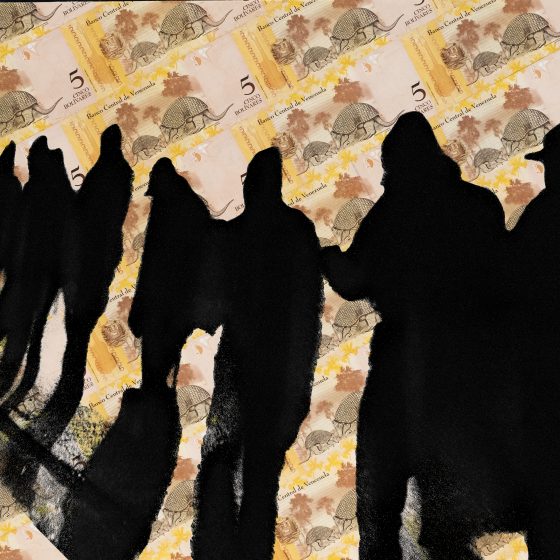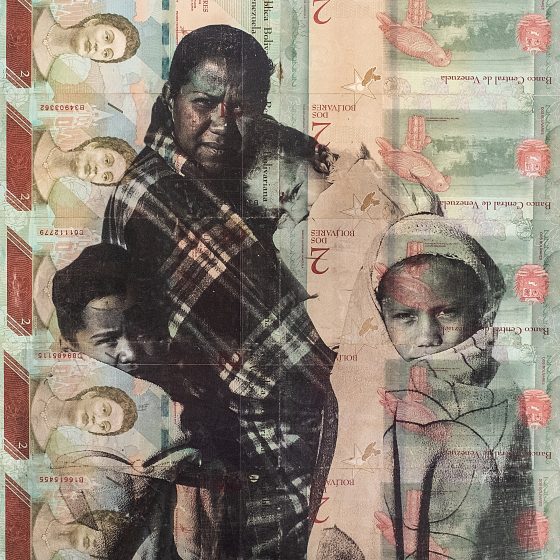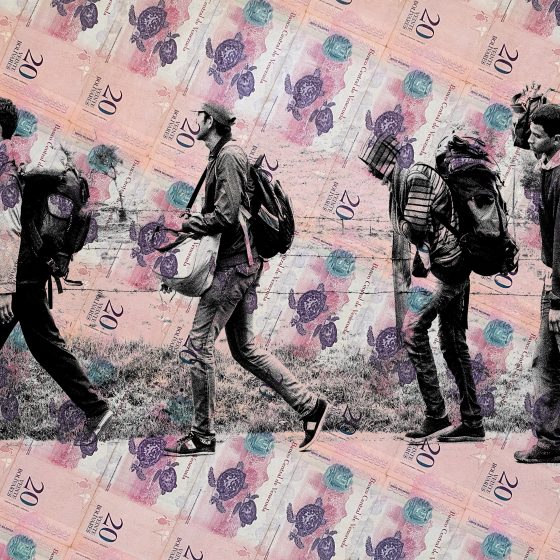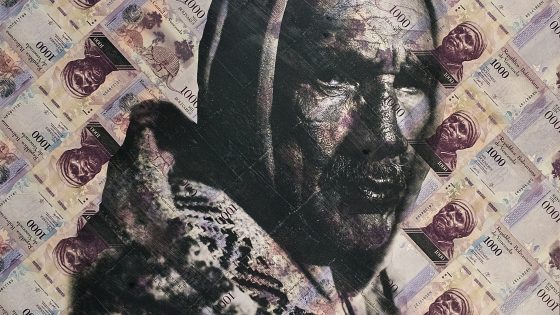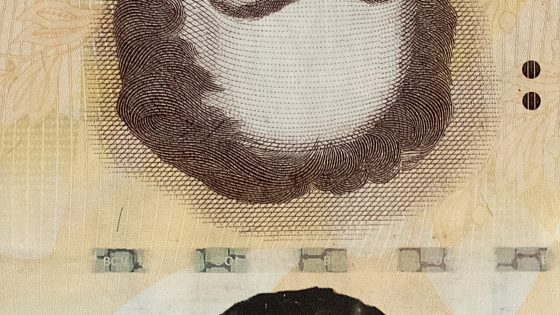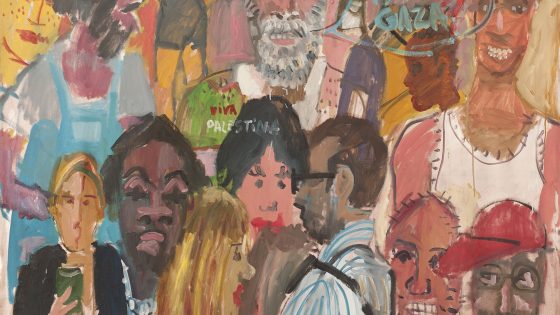Caminantes. Felipe Jácome
The Caminantes project arose through a gift from a Venezuelan girl offered to Felipe Jacome. It was an origami in the shape of a starry heart. This detail actually represents the symbol of Venezuela’s economic tragedy: a bolívar bill.
Between falling oil prices and political wrangling, Venezuela has the highest inflation in the world. This little origami illustrates the scope of the devastating currency devaluation that has affected the country since 2013. Photographer Felipe Jácome’s Caminantes project focuses on the human consequences of this economic drama.
According to UNHCR (United Nations Refugee Agency), more than 5 million Venezuelans have left the country. To document one of the largest situations of displacement in the world, Felipe Jacome uses the same material as the girl. The expressions on the portraits printed on the bundles of bolivars immediately draw attention. The faces marked by despair and uncertainty stand in the way of the proud portraits of Bolívar, Miranda, Guaicaipuro, Cáceres […], those historical figures who honored the wealth of Venezuela.
An oil hungry country
This oil-rich country is rich in resources, and yet Venezuelans are starving: the number of undernourished people has only increased since 2014, according to the Food and Agriculture Organization of the United Nations (FAO). ). The scarcity of food is one of the reasons for this mass exodus.
While the reasons why Venezuelans are fleeing a devastated and seriously insecure country are understandable, the causes of this crisis are not easy to understand.
“It is strange that a country sinks like this, without having suffered the war. I hope that the exhibition will encourage visitors to investigate the subject“, wishes Felipe Jácome.
This is not the first migratory crisis that the Ecuadorian photographer has documented. He has been around the world, working for National Geographic, The Washington Post, Foreign Policy Magazine, The Guardian, etc. He selects his photos based on the emotions they convey. A photograph worthy of being published, according to Felipe Jácome, “must communicate something, strike the imagination and provoke several questions.
Those of the Italian photographer Paolo Pellegrin, for example: when you look at them, you wonder what happened before and after, what the photographer wanted to capture, how he found himself in that situation…”.
An art that challenges… and soothes
If his photos arouse curiosity and raise awareness, they also have therapeutic virtues. The exhibition will be held in the heart of the Spanish capital, and it is not by chance: “Many Venezuelans have emigrated to Madrid. They will be able to identify themselves through the portraits”, comments the artist.
During the production phase, Caminantes also served as a safe space for a group of Venezuelan migrant women. By participating in the artistic process for a month, they finally had a safe space to, for the first time, be able to express themselves and share what they had experienced. “It was really wonderful,” he says. Working with people who have gone through this experience was also very significant”, he adds.
Documenting an immigration crisis is delicate work, requiring a true emotional investment.
“The photographer has to be empathetic to understand the situation and gain the trust of the people he wants to portray. You have to go there“, explains Felipe Jácome. To recount the Venezuelan migration crisis, he applied his principles and went to the country’s border. He traveled 400 kilometers with men, women and children who had embarked on the path of the exodus.
Migration […] is an act of generosity
What impressed me the most -says Felipe Jácome- was seeing the families with their children. While most adults have the physical and emotional resources to deal with this crisis situation, younger people do not.
In the course of the kilometers and the talks, the photographer noticed the existence of a strong link between the children and the act of migration.
“In most cases, migration is an act of generosity. When I asked the walkers why they had left, the answer was the same nine times out of ten. It was almost always for someone else and especially for the children,” he says.
In a country where, according to Reuters, a kilo of pasta was worth 5 million bolivars in 2018, it is easy to understand why parents dream of a better future abroad for their children.
“[Walking] is the history of humanity”
“When things don’t go well, we leave. It is a very human basic act. In fact, it is about the history of humanity”, concludes Felipe Jácome firmly.

